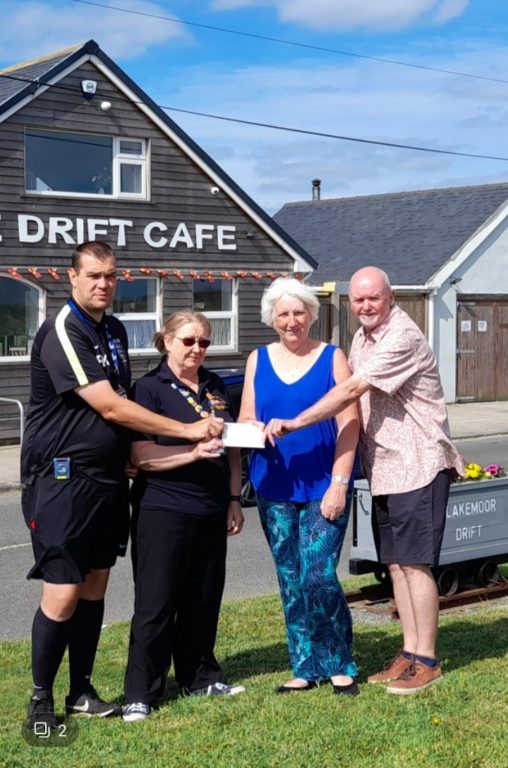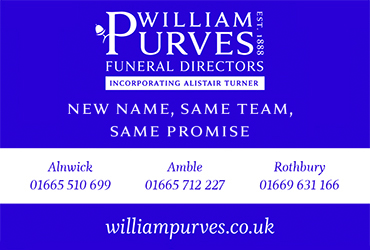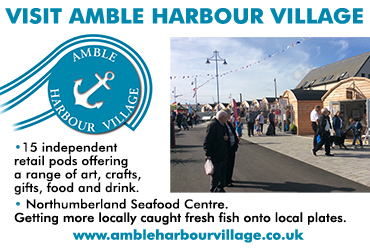Letters #129
 Save Druridge donates to RNLI
Save Druridge donates to RNLI
As many of you will know the Save Druridge campaign fought against the Opencast Coal Mine proposed at Highthorn, Druridge Bay. We eventually won our fight last year when Secretary of State Robert Jenrick rejected the mine for a second time.
As a Campaign Group we had to raise many thousands of pounds to pay for expert reports and also to pay our legal fees for both a Solicitor and Barrister. We are grateful to all of those people who helped us raise funds through events and a crowdfunder. Many local people were extremely supportive and generous.
After paying all of our bills we were left with a small amount of money which we as a group wanted to give back to the local community.
So on 15 June 2021 we handed over cheques of £125 to each of the following Charities: Amble Lifeboat Station, the British Divers Marine Life Rescue, Blyth Wildlife Rescue and a cheque was sent to South Lakes Action on Climate Change to help with legal fees on the proposed Cumbrian Deep Mine campaign.
Lynne said “Amble RNLI do a fantastic job to help save both local people and visitors to Amble and the surrounding area. It is also good to know we have experienced local animal and marine rescues who are out there every day saving our wildlife along the Northumberland Coast.”
Lynne Tate,
Save Druridge Campaign
_______________________________________________________________________________________
Togston forgotten!
In the June/July issue of the Ambler Councillor Terry Clark reported “it was a privilege to represent Amble, Hauxley and North Broomhill” in the May election. Unfortunately, he did not mention Togston village that is very much a part of his Amble ward. Togston village was also forgotten in his campaign leaflets. Can I extend an invitation for him to attend Togston Parish Council meetings to become involved with residents? We look forward to his support on infrastructure and reports on the local area plans that affect the village.
Councillor June Watson
Chair Togston Parish Council
_______________________________________________________________________________________
Mind your language
I write once again about an issue published n the Ambler, namely the use of personal pronouns. The purpose of language is to help articulate our thoughts to other people. The use of grammar provides the rules by which such communication may be understood by others. We may use the metaphor of roads and road signs to help explain this. Language provides the roads or conduits for our thoughts and grammar provides the road signs in order for them to be better understood. Just as we can imagine the utter chaos of a road network without road signs, so we cannot imagine language without grammar.
When we refer to “he or she or it”, the rules of grammar tell us that we are speaking of an individual person or item. When we refer to “they or them” we understand that it is a group of more than one. The rules help us to correctly understand and that is the whole point.
Today, even the concepts of “woman” or “mother” are being written out of the language by politically correct institutions. Various parts of our medical establishment have substituted the words “women” “mother” and “breastfeeding” with the words “persons with a cervix/persons who menstruate” “birthing person” and “chest feeding” respectively. The very concept of womanhood could be completely obliterated by this new authoritarian form of newspeak.
The use of personal pronouns is just another example of this utter lunacy.
To those young people attracted to this new masterclass in self-deception, this new woke orthodoxy, I would respectfully suggest just one thing: please retain the inclination to think for yourselves and to do so critically about absolutely everything even or especially this letter. Please don’t blindly follow the crowd’s latest fad just because it’s fashionable to do so.
Kevin McCann via email
______________________________________________________________________________________
The Queen’s green canopy
I recently read an article in the Woodland Trust’s Broadleaf magazine about the Queen’s Green Canopy scheme, a tree planting project to mark the Queen’s Platinum Jubilee in 2022. The overall aim is to create 70 new broadleaf woods across Britain and encourages schools and community groups to apply for free tree packs to help the scheme along and mark the occasion.
It struck me that Amble generally has a paucity of trees, despite its growing size, and developers seem not to be incorporating many trees into their developments as an obvious way to help offset the carbon waste created by new housing. And, whilst Amble may not be the ideal site for a new wood per se, this opportunity seems too good to waste and would be a chance to support wildlife habitats in the town and introduce greater variety of broadleaf trees, which at present seem limited largely to sycamore, pine and alder. Where are the oaks, the limes, the beeches which add colour and character to a town and valuable habitat to birds, small mammals and insects as we strip their natural territories from them with our voracious appetite for land. Variable tree pack sizes are available and any contribution to planting, no matter how small, would surely help.
I would be interested to know if any community groups are already involved in this initiative or at the very least are there already plans for a commemorative tree in the town? If not, I would like to encourage people to consider the idea.
More information is available at queensgreencanopy.org or woodlandtrust.org.uk/QGC.
Hilary Shutt via email
_______________________________________________________________________________________
We need a crossing at the Wynd
Why can’t we have a safe way to cross the road between traffic, of all types. Such as the top of the Wynd in Amble, more people live here visit, or holiday, it’s about time something was done. After all the previous roadworks still no pedestrian crossing. So it must be a good and safe way to cross in between busy oncoming cars, lorry’s and other oncoming vehicles ? It’s a choice, but we can only walk over the road, hoping to reach the opposite pavement.
P. Thompson via email
_______________________________________________________________________________________
Conservation issues
As a relative newcomer to Amble, I would like to say how much I enjoy reading each new edition of the Ambler. I think that the articles by the younger contributors deserve special mention as they tackle important social and environmental issues which deserve much wider discussion. I am particularly interested in the environment and was pleased to see a good number of related topics in the June/July issue.
With there being such a strong interest in the natural environment I was surprised to notice earlier in the year that large quantities of weedkiller had been applied to the ground under and around the trees which line the A1068 between Brambles Nursery and Penny’s Petroleum. The natural vegetation turned orange and then brown as it died off. The vegetation is barely beginning to recover but why was it killed off in the first place?
At the very end of April just as birds were beginning to nest, as area of undergrowth under a group of willows next to Penny’s was also destroyed for no apparent reason. The timing of this work coincided with the return of migrating birds such as whitethroat and chiffchaff which nested in the undergrowth there last year but not this year.
Further spraying took place behind Brambles which targeted nettles (food plants for the caterpillars of small tortoiseshell and peacock butterflies} growing under the shrubs alongside the footpath. At the beginning of June someone on a quad bike was randomly spraying herbicide in the Priory Park area and spraying a small area containing ornamental plants outside my house killing all but one.
Given that there is some concern about the carcinogenic properties of weedkiller why are these chemicals being used so frequently in public spaces particularly in residential areas? Perhaps whoever plans these actions might be well advised to read the Ambler to see how important the natural environment is to so many people.
Hugh Tindle, Priory Park, Amble











